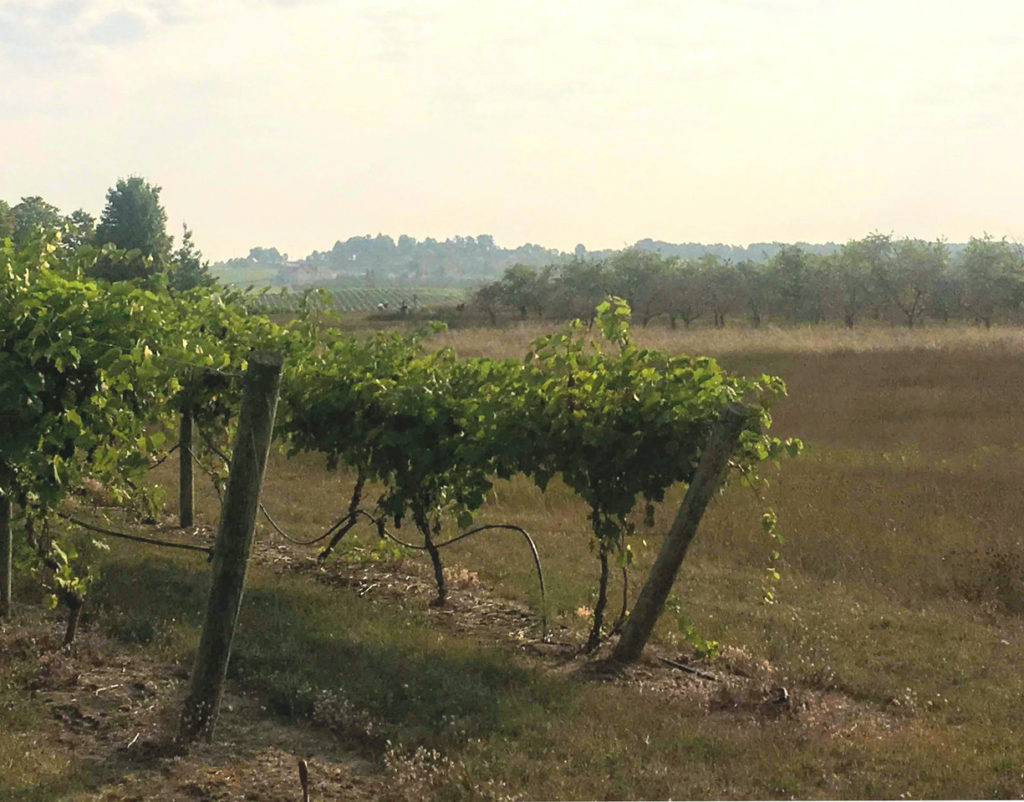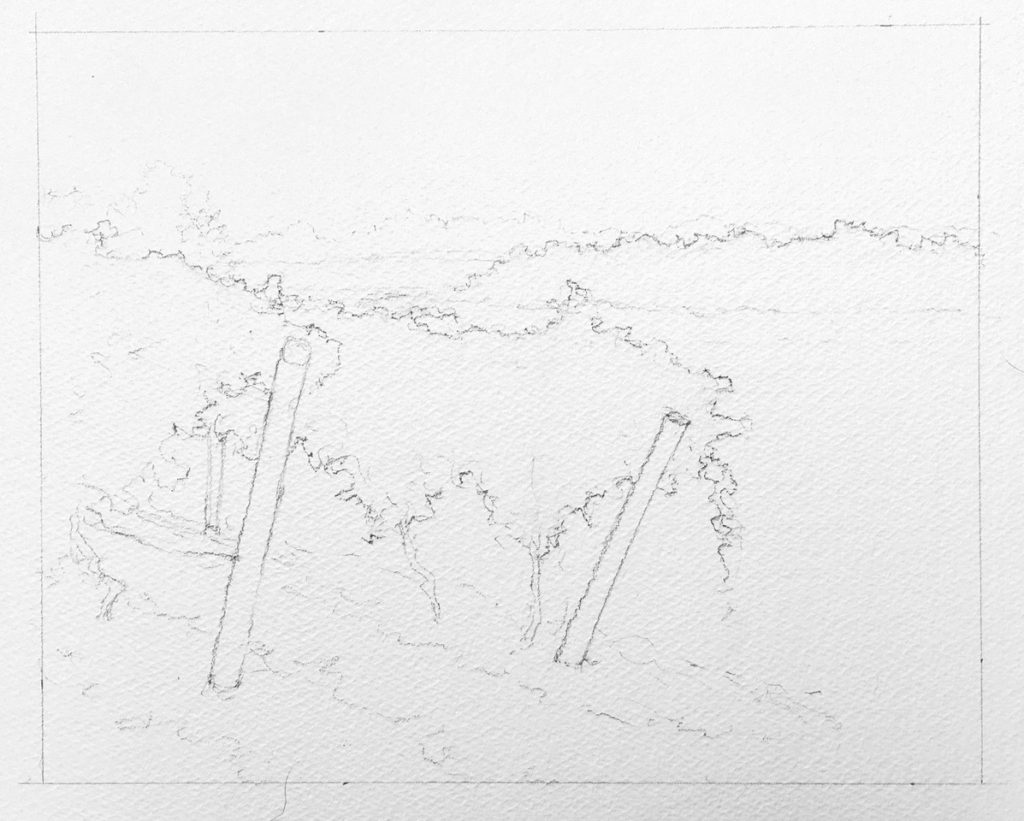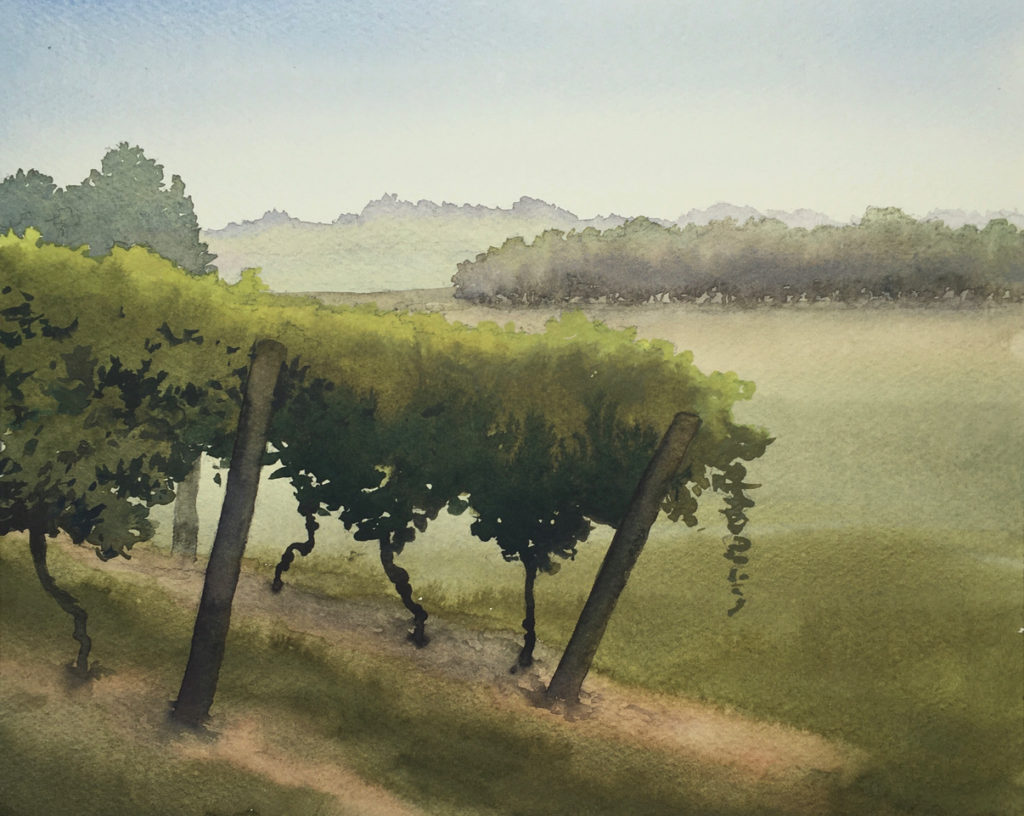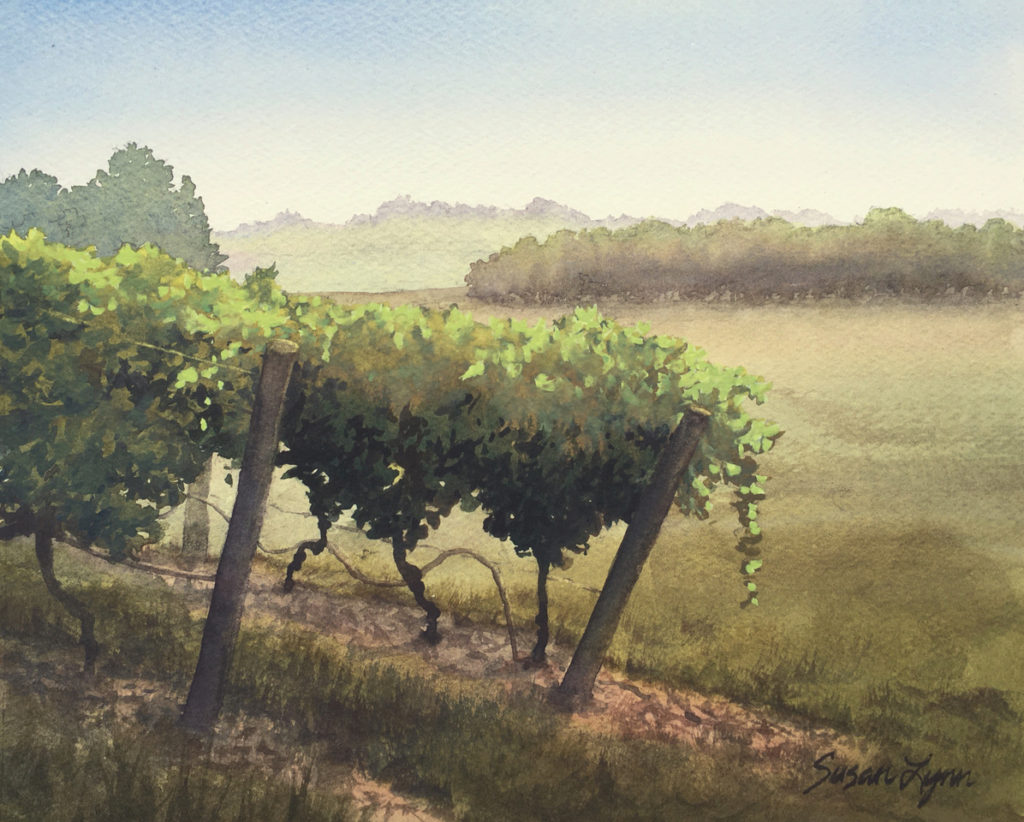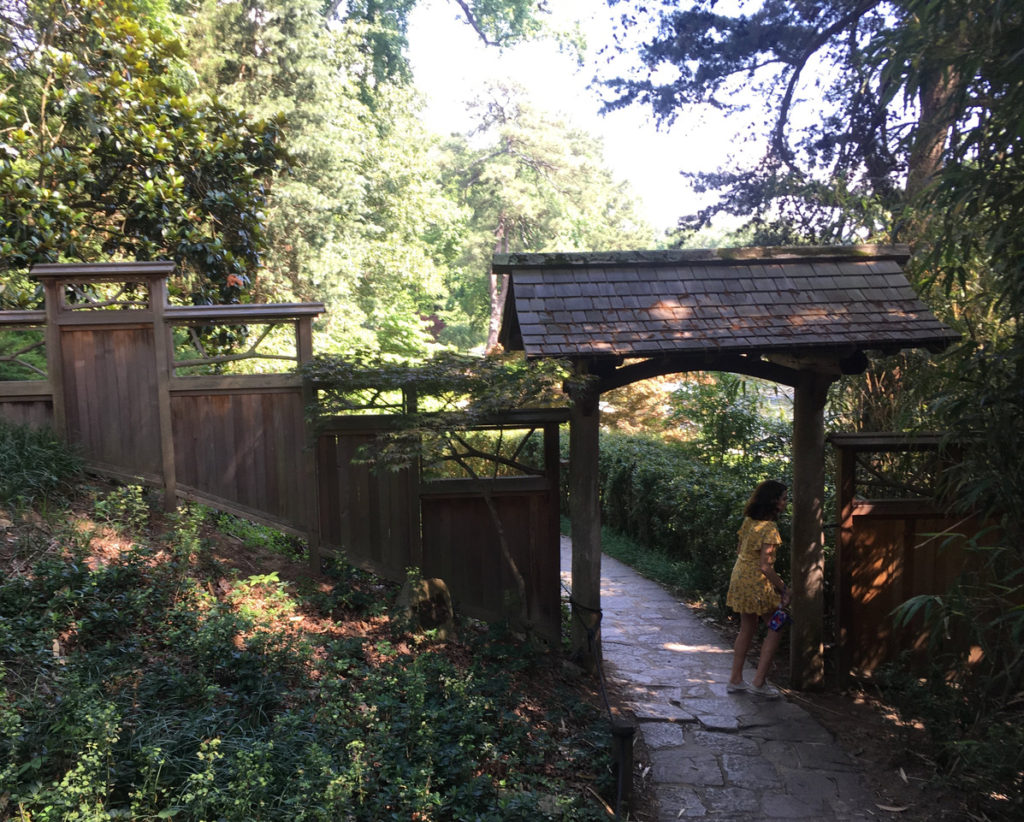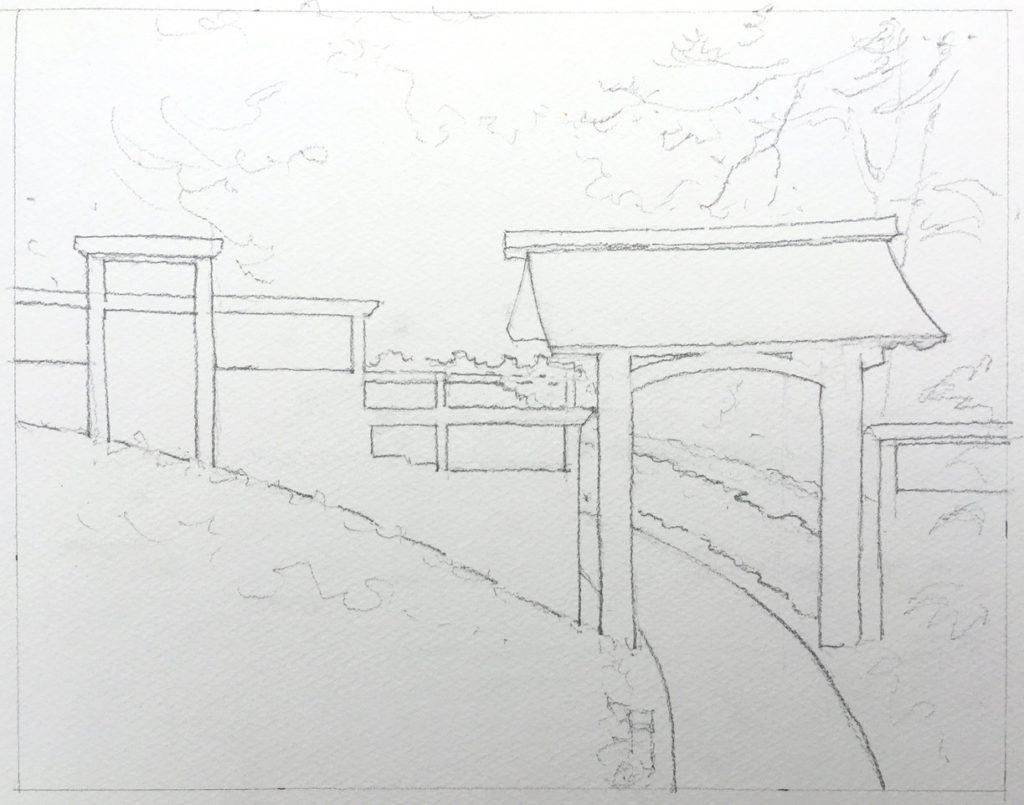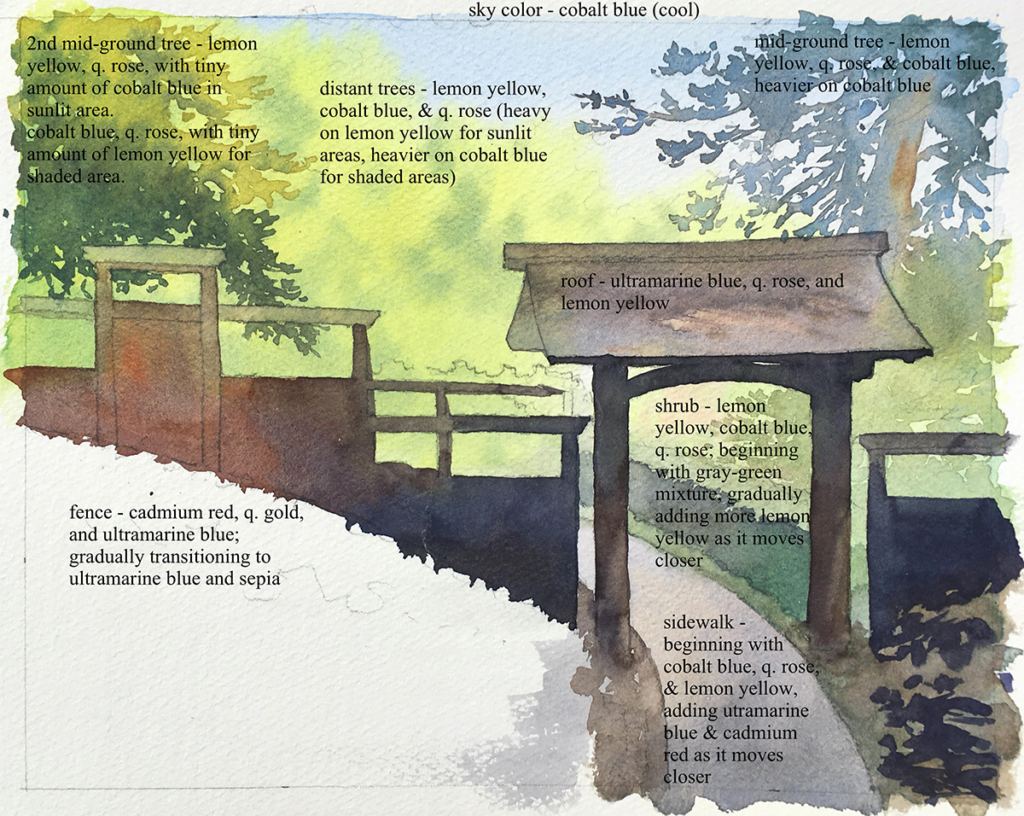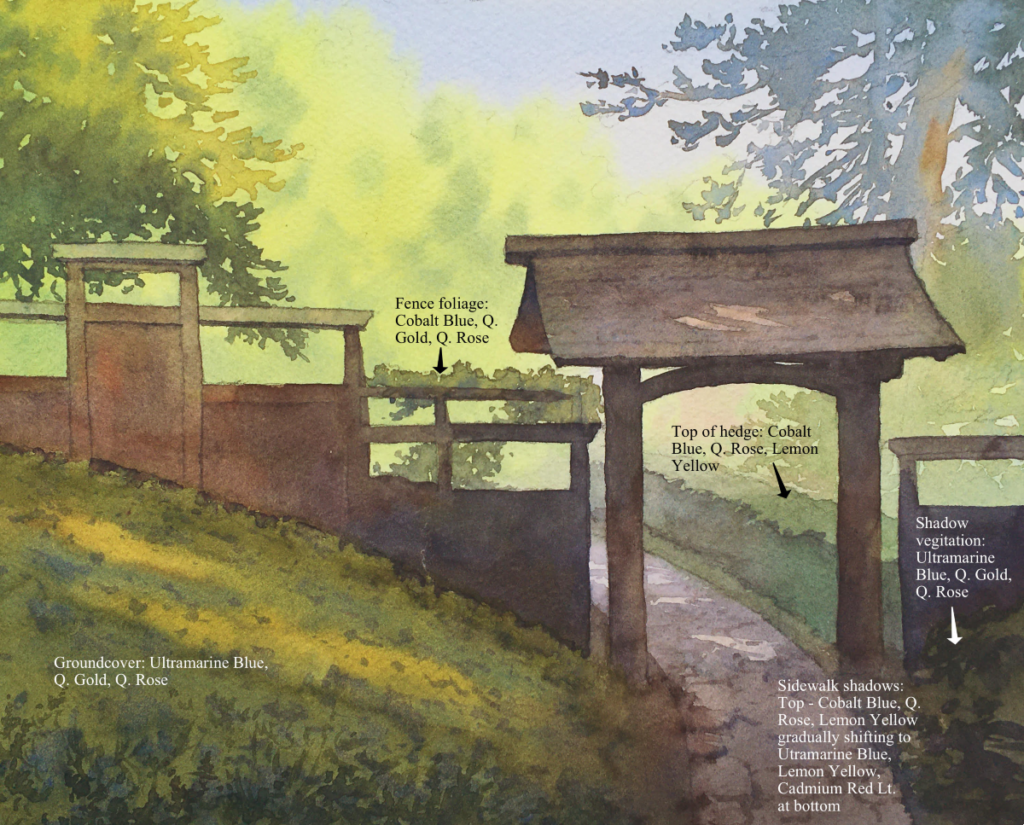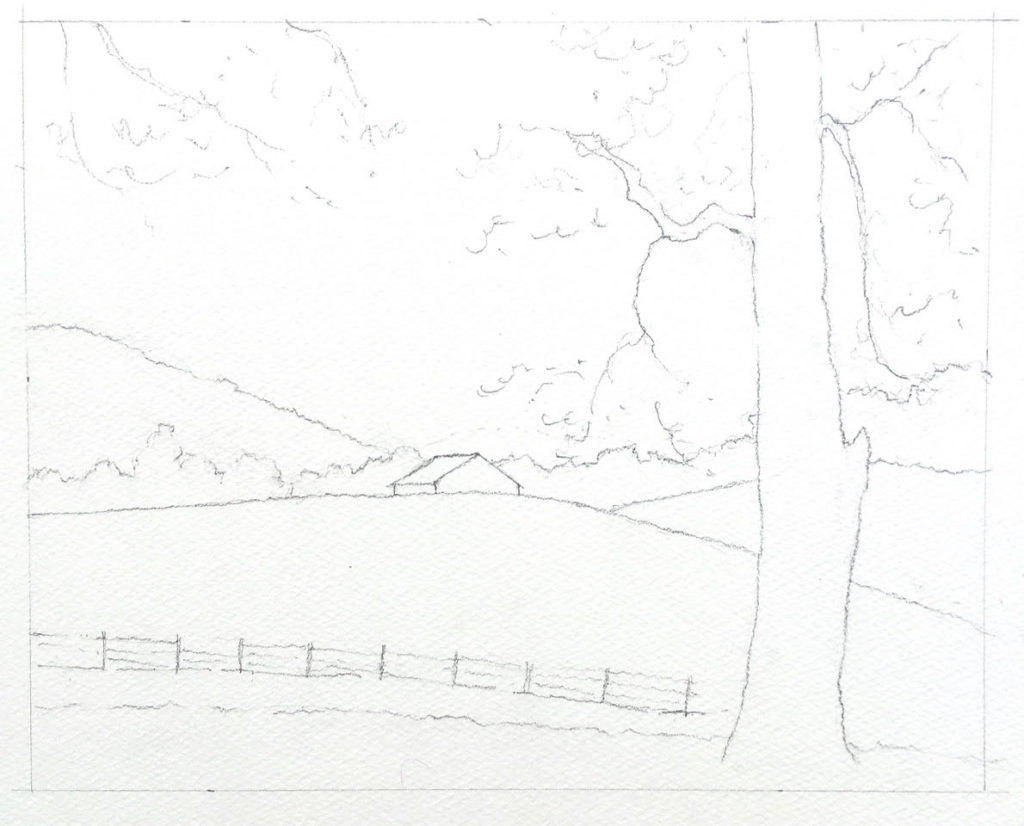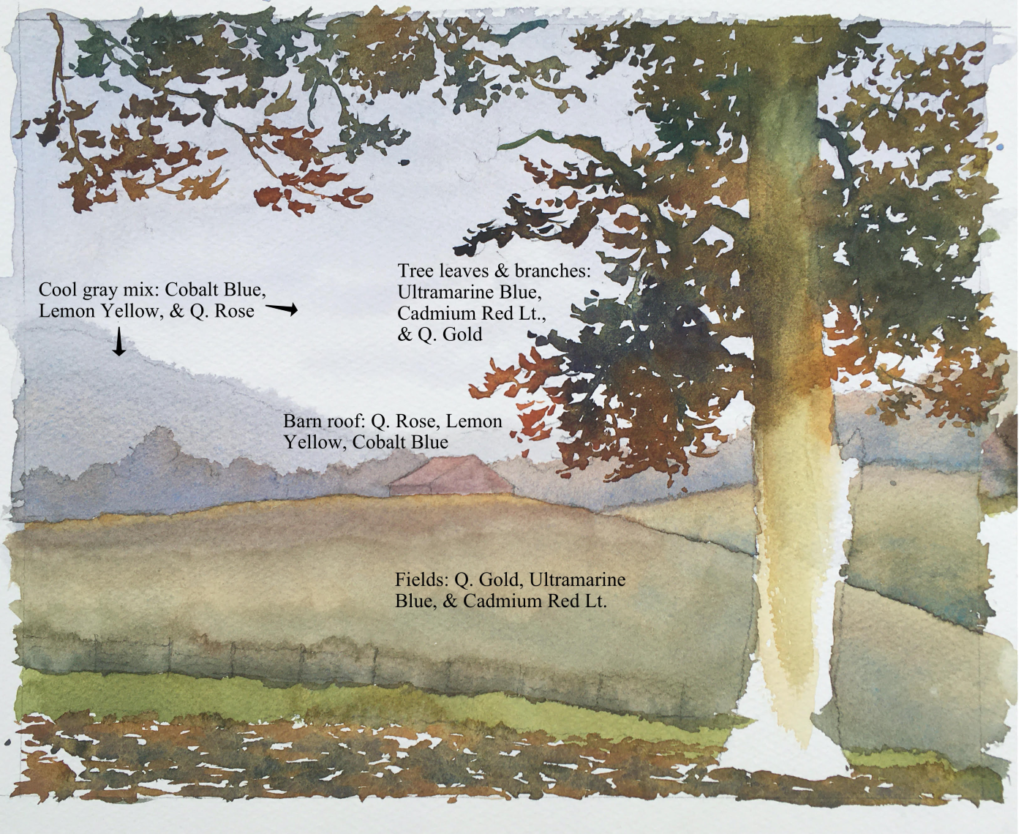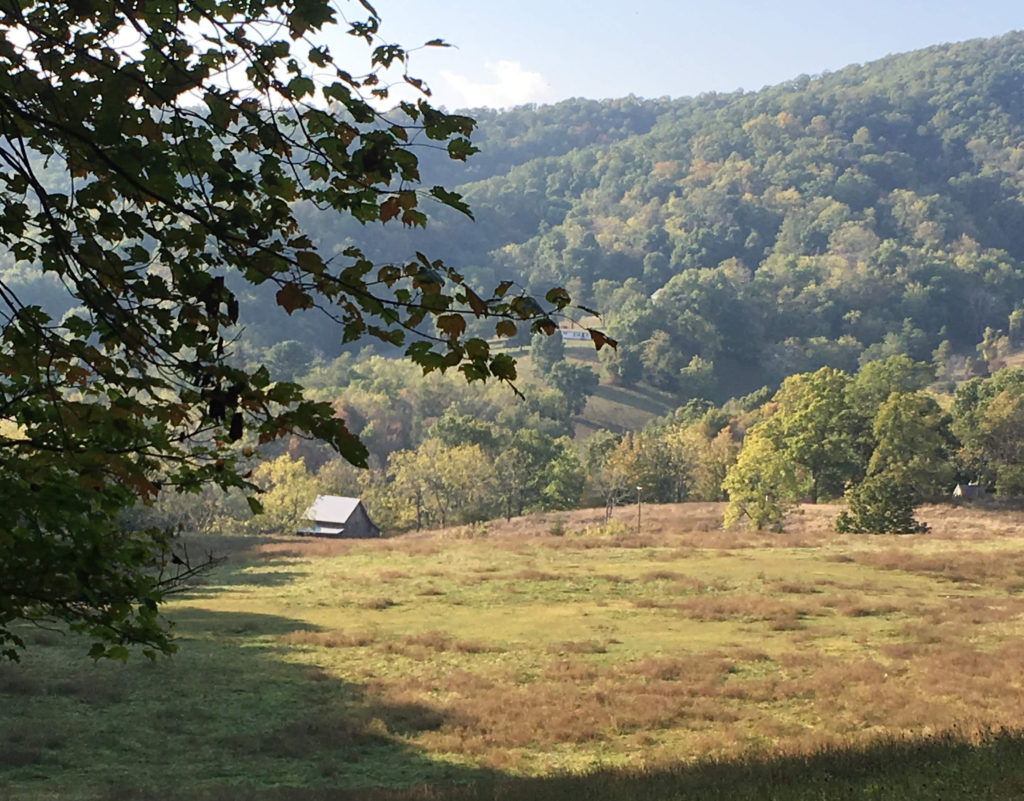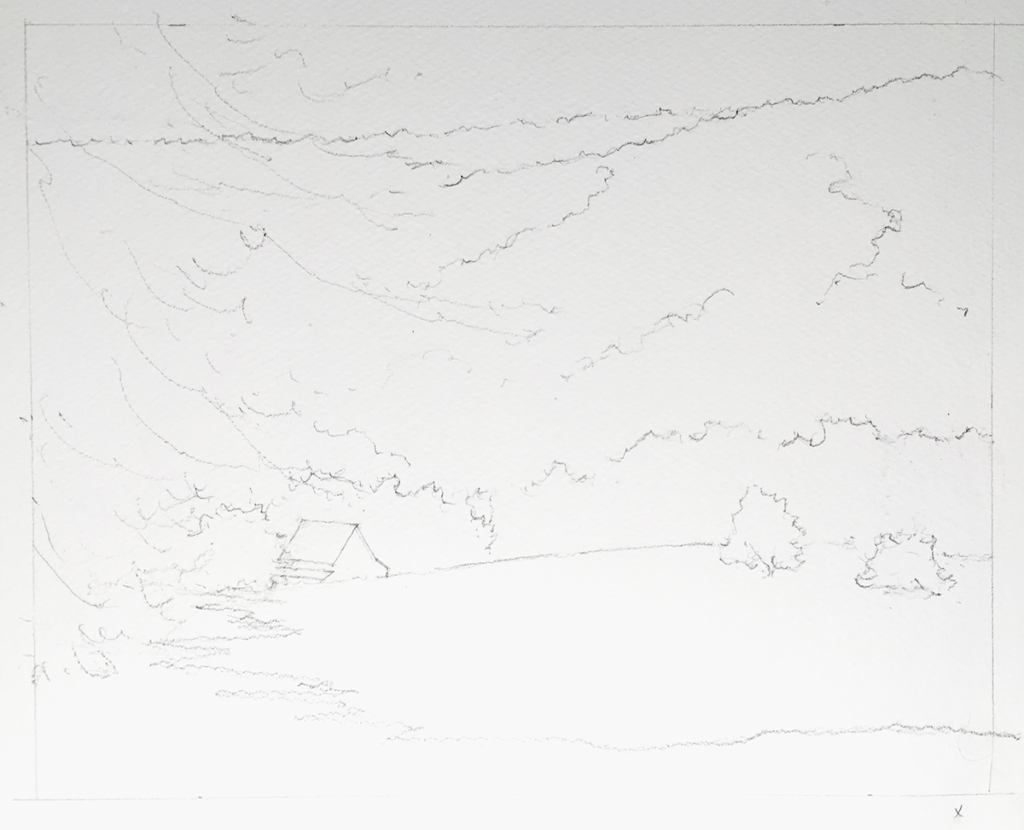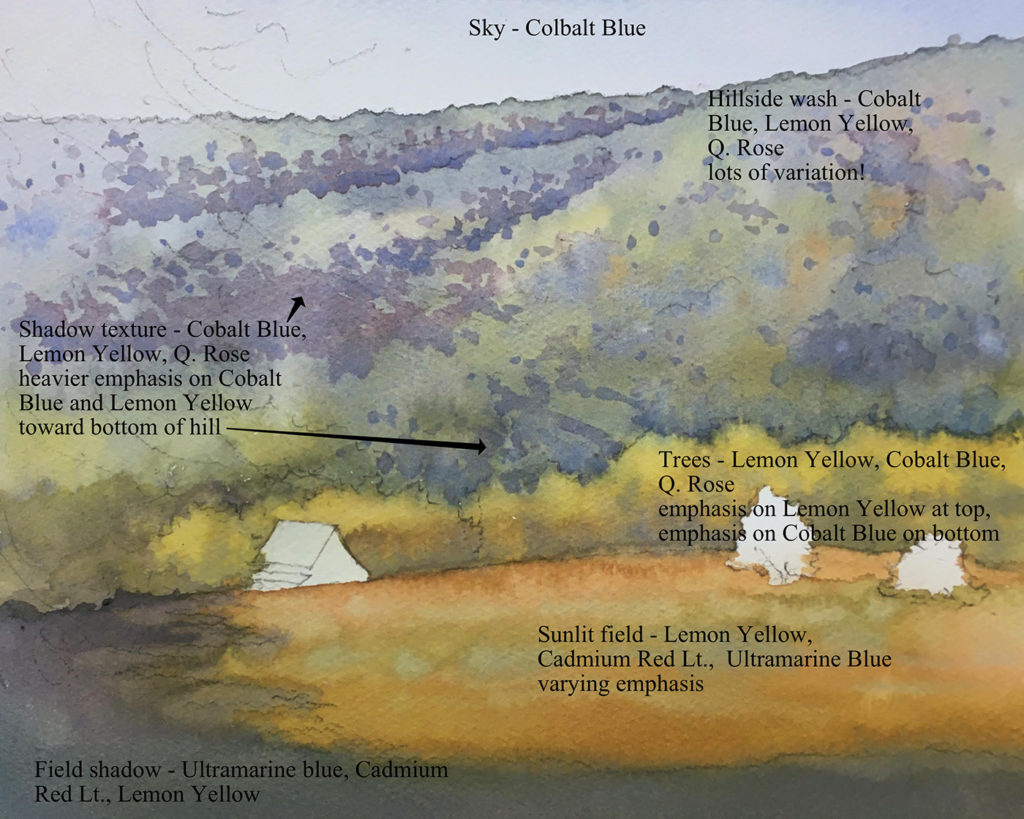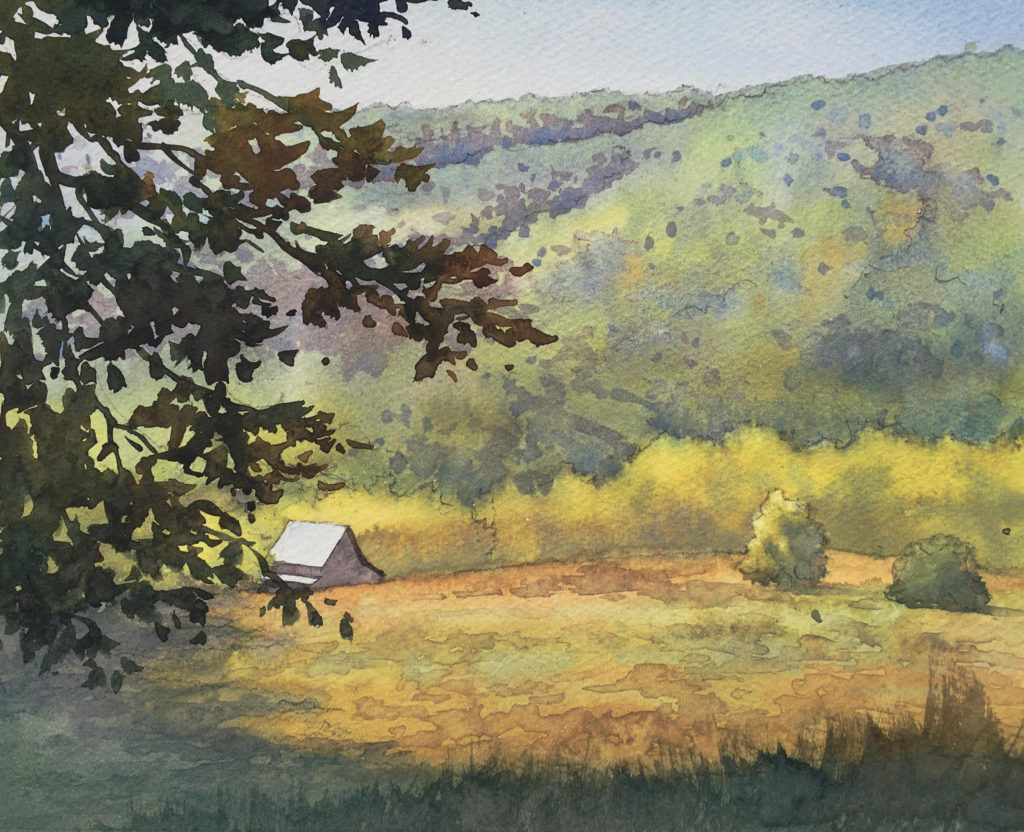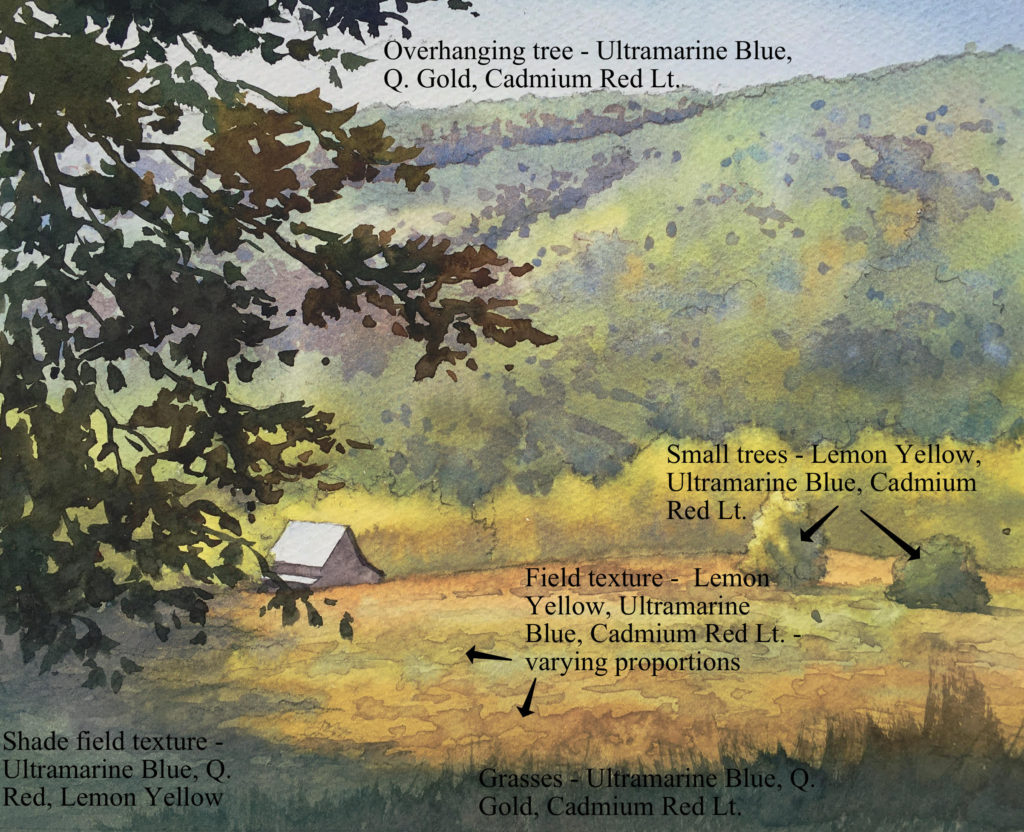1.Watercolor paper, cut to size – 1/4 sheet (11″ x 15″) or 1/8″ sheet (7.5″ x 11″). Cold-pressed paper is recommended, either 140# or 300#. Watercolor blocks are also an acceptable option. I will be using either 300# Fabriano Artistico paper, or an Arches 140# watercolor block.
2. Brushes – a #10, #12, or #14 Round with a good point and a 3/4″ Oval Wash are suggested, made of natural hair (squirrel is a good option) or a good quality synthetic blend. I like Silver brand’s Black Velvet series brushes, which are a squirrel/synthetic blend.
3. Paints – a selection of 2 blues, 2 reds, and 2 yellows (one warmer, one cooler of each). For example, Ultramarine Blue, Cobalt Blue, Cadmium Red Light, Alizarine Crimson, Quinacridone Gold, and Lemon Yellow. Optional additions to your color palette are Sepia (I like to have this on hand to punch up my darkest darks), and Chinese White, for occasional highlights.
4. A palette – a small, plastic watercolor palette that folds shut works great. In the studio, I use an enamel butchers tray. Just make sure what you are using gives you a large mixing area.
5. Misc. supplies – A water cup/bucket (16 oz. +), water, paper towels, HB or softer pencil, kneaded or vinyl eraser, and a small spray bottle. (You can usually find a spray bottle either at a hardware store or at a pharmacy with the cosmetic containers for traveling. Art supply stores also have them, often at a much higher price.)

